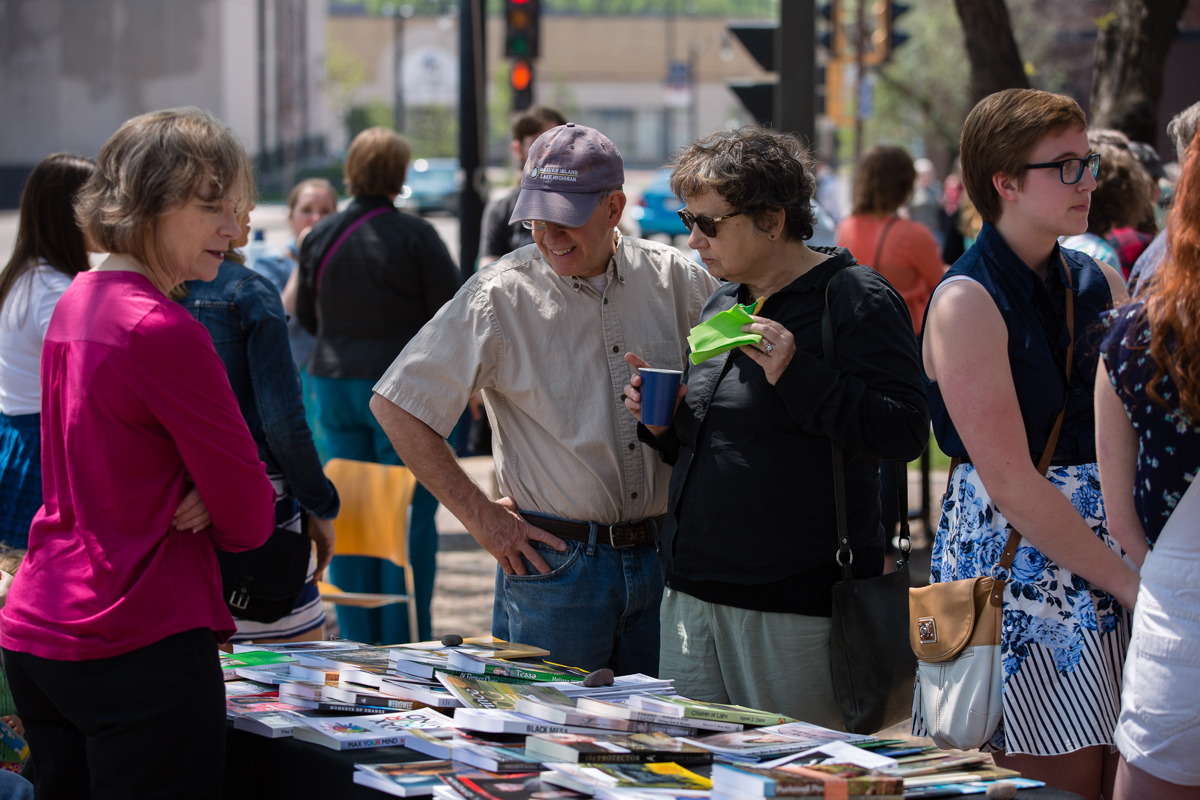By Ken Szymanski
Mike Perry’s level of success can’t be reached by listening to a speech. Still, the L.E. Phillips Memorial Public Library basement was packed with aspiring writers for his May 7 keynote address for the Chippewa Valley Writer's Guild, all us hoping to catch some tips that might provide the elusive secret.
Anyone who’s reading this knows the Mike Perry story. His success has been a blend of natural born talent and farm boy work ethic, combined with the ability to work a crowd on a book tour stops. Plus, his books often cover the right topics at the right times. Simple, right? Hardly. But he did reveal a simple word important to aspiring writers.
Perry said that being a successful freelance writer starts with saying yes. When agent called and asked if he’d be willing to climb up Mount Rainier for a story, he faked a confident “Yes.” And saying yes over and over has led to opportunities that provide a more exciting angle to writing than simply sitting at the keyboard. “Writing is a means to adventure,” he said, showing slides of mountain top views.
Once on assignments, he stressed the importance of observation (“You have to be the five senses for the reader”) and veracity (it wouldn’t be a Perry if he didn’t send some of us to the dictionary at least once). Nonfiction writers depend on the reader’s trust. It cannot be broken.
One audience member asked how to deal with having so many job-related writing obligations, that she had little time left to do the writing she really wants to do.
While writers dream of having months to devote to a project, Perry said that can be actually be counter-productive. Put in that situation, writers can auger down rather than gain traction. Conversely, the brain can spark a lot of ideas while doing other things. Tasks such as chores, mundane writing assignments, firefighting calls, etc. can give the brain a needed break or stimulus for the creative project. Sounds like part of the trick, for busy people, is to learn how to work on your writing when you’re not working on your writing.
But for those who like to talk about how writing is such tough work, Perry offered some relief. His brother is a logger up north. If writing is so hard, Perry said, try logging with him. “I’m sure we could arrange a sabbatical for ya,” he said, drawing a good laugh from the crowd.
That’s classic Perry. He loves talking about the craft of writing, but he never gets mystical. He mentioned that his muse is the guy at the bank who holds his mortgage. He writes to put food on the table for his family. It’s simply about observing, writing down observations, typing them up, printing them, cutting up those observations and laying scraps all over giant tables, and finding connections. Simple, right?
Sometimes it’s what Perry called “word jazz” and other times, he said, “It’s like a desperate game of literary solitaire.”
Literary solitaire: that sums it up the writing process as well as anything. It can be frustrating, success can be elusive, but if you stay up late enough and play long enough, eventually you’ll win one.










